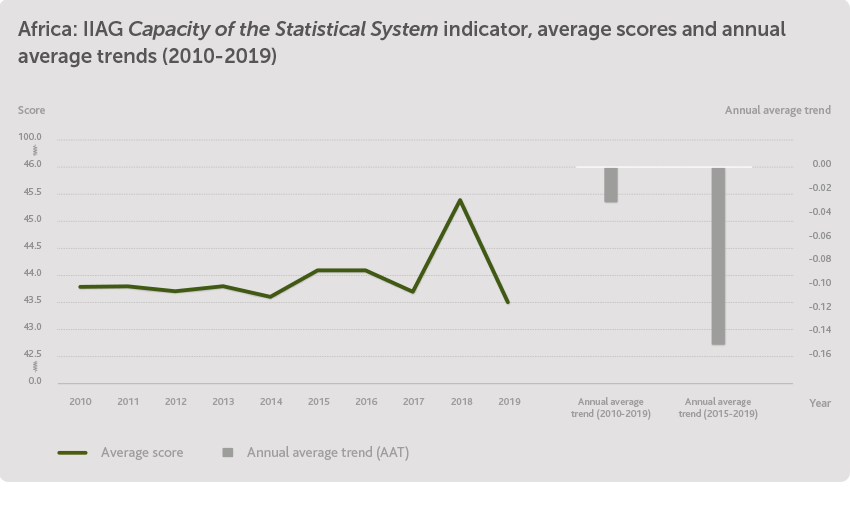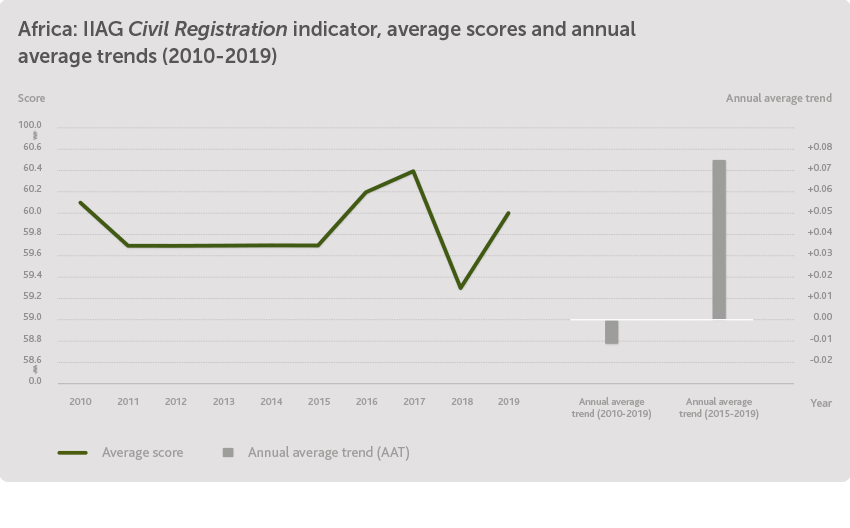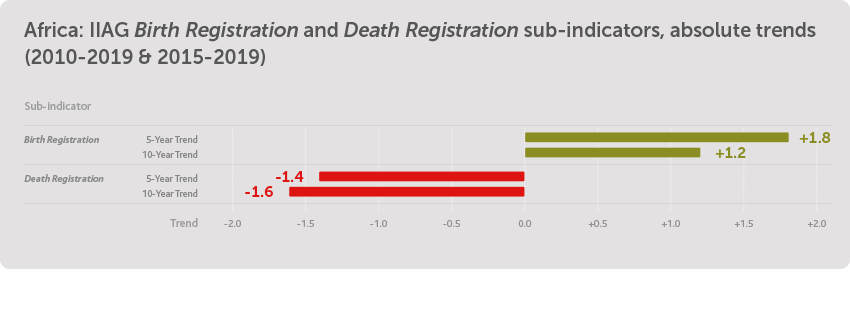

An increased demand for data, but a still weak statistical capacity in Africa
The UN’s 2030 Agenda for Sustainable Development (SDGs) and African Union’s Agenda 2063 are the two main overarching frameworks containing the commitments of African countries to sustainable development and inclusive growth for the next decades. To measure progress, both agendas have stepped up the demand for data to an unprecedented level both in scope and granularity.
The preceding framework – the Millennium Development Goals (MDGs) – required countries to collect data to report on 8 goals and 21 targets to be achieved by 2015. Today, countries are expected to do so for 20 goals and 255 targets under Agenda 2063, and 17 goals and 169 targets under Agenda 2030.
At the same time, statistical capacity in Africa is still weak. There is a significant shortage of African-produced country and country-adjusted data and most data points for African countries are either estimations, global monitoring or modelling. An assessment in the 2018 African Statistical Yearbook revealed that of the 230 indicators in the global SDG database dissemination platform, only 96 (41.4%) have data available in African countries to measure progress towards Agenda 2030.
Capacity of the Statistical System is on a path of increasing deterioration
The 2019 African average score for the Ibrahim Index of African Governance (IIAG) Capacity of the Statistical System indicator amounts to 43.5 (out of 100.0), compared to 43.8 in 2010 (a decrease of -0.3 points over the decade). The trajectory of this indicator has shown a decline both over the decade and in the last five years (2015-2019), and the pace of deterioration has even been faster since 2015 (at an annual average rate of -0.15 compared to -0.03 over the decade).
Research Spotlight series
A new format exploring IIAG data and key facts and figures on African governance more in-depth.

The IIAG indicator Capacity of the Statistical System assesses the capacity of a country’s statistical system and measures the extent of statistical data coverage, and the openness of statistical data.
Statistical capacity, civil registration and COVID-19
The COVID-19 pandemic has highlighted fundamental data gaps in Africa even more, particularly in relation to health and civil registration. Poor data coverage of health facilities and health outcomes on the continent negatively impacts the crucial timely production of statistics during health emergencies, making response and recovery efforts more difficult.
Furthermore, only eight African countries out of more than 50 have a universal death registration system, according to research from the BBC and the UN’s Economic Commission for Africa (UNECA). Without the full registration of deaths, the calculation of 'excess deaths' – a measure that compares the actual deaths over a period of time with the number of deaths expected based on the same period in previous years – a key indicator of the pandemic’s fallout, is impossible in most countries.
Civil Registration declines over the decade, but picks up progress since 2015
The 2019 African average score for the IIAG indicator Civil Registration is 60.0, compared to 60.1 in 2010. Despite showing a decline over the decade, the trajectory of this indicator has improved since 2015, showing signs of bouncing back (at an annual average rate of +0.08 compared to -0.01 over the decade).

The IIAG indicator Civil Registration assesses the extent to which birth and death certificates are available within 30 days free of charge.
At the sub-indicator level, even though the 2019 African average score for Death Registration is higher than that of Birth Registration (60.2 and 59.7, respectively), they are displaying opposing trajectories. While birth registration has improved in Africa both over the ten and five years, and has done so at an even faster pace in the latter period, death registration has deteriorated in both time periods, and the pace of decline has accelerated since 2015.

To build forward better, paving the way for a resilient and green Africa that overcomes the COVID-19 crisis and achieves the goals and targets of Agenda 2030 and Agenda 2063, there is no doubt that African countries will have to prioritise building their statistical and civil registration capacities. It is the only way to leave no one behind.